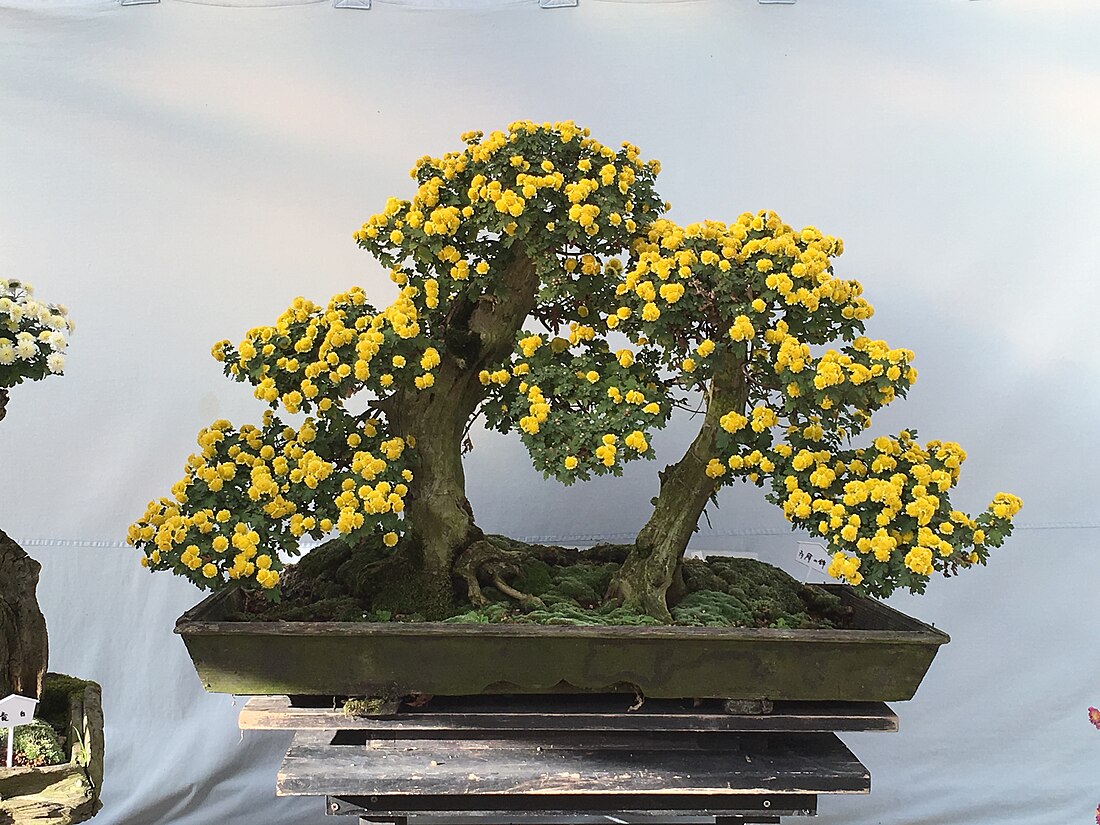Top Qs
Timeline
Chat
Perspective
Chrysanthemum bonsai
Japanese art form From Wikipedia, the free encyclopedia
Remove ads
Chrysanthemum bonsai (Japanese: 菊の盆栽, romanized: Kiku no bonsai, lit. 'Chrysanthemum tray planting', ⓘ) is a Japanese art form using cultivation techniques to produce, in containers, chrysanthemum flowers that mimic the shape and scale of full size trees, called bonsai.

Remove ads
Cultivation and care
Bonsai cultivation and care requires techniques and tools that are specialized to support the growth and maintenance of the flowers in small containers. There are several cultivated varieties of chrysanthemum that possess the ability to be trained into many of the traditional bonsai styles associated with woody trunked trees and shrubs. But since chrysanthemum rarely grow to be old enough to have wood, deadwood bonsai techniques may also be used.[1]
Chrysanthemums are perennials, and while it is possible to keep a chrysanthemum bonsai alive for a number of years (old wood), it is more likely that the bonsai will be 'finished' after all the blooms have faded.[2]
The chrysanthemum bonsai artist must complete all design work in fewer than ten months. Most chrysanthemum bonsai artists in the northern latitudes of the United States start the training of their bonsai in April, and are finished by the middle of September.[2]
Traditionally in Japan the Chrysanthemum exhibitions showcase the different bonsai forms.[3] This takes place in autumn around the months of October and November.[4]
Remove ads
Styles
Various bonsai styles exist, such as the cascade style, the clinging to a rock style, and the forest style.[5]
- Cascade style
- Clinging to a rock style
- Forest style
- Various other smaller pieces
See also
References
Bibliography
External links
Wikiwand - on
Seamless Wikipedia browsing. On steroids.
Remove ads




